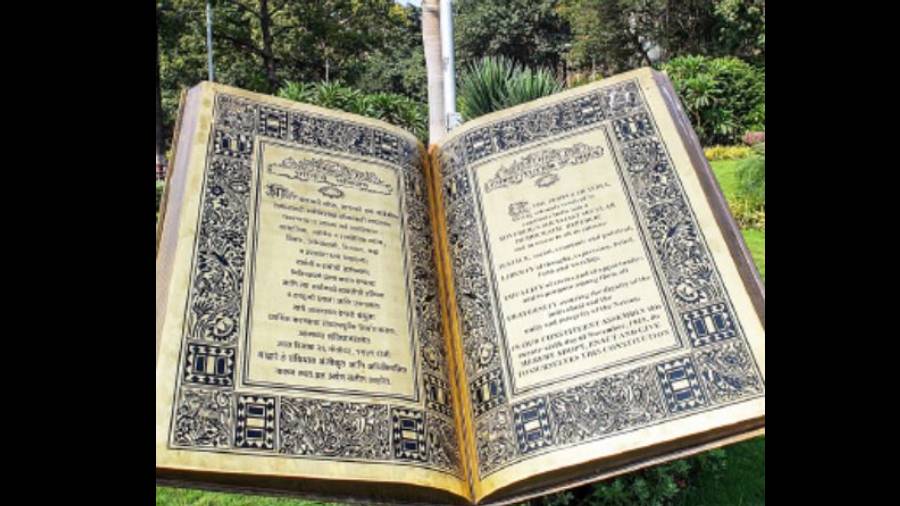“Manavta ki jaan hai, Samata pehchan hai, Bharat ki shaan hai, Samvidhan hai vo, Bharat ka Samvidhan hai (The Constitution is the essence of humanity, an identity of equality, and the pride of India).” With this catchy song, youth artist groups led by Aakash Parmar in Thane, Maharashtra, are using music and other art forms to popularise the values of the Constitution.
The accessibility of the Indian Constitution has been a contested issue. This is because the Constitution has been restricted to the legal elite. Yet, communities are owning it and making it accessible using innovative means. For instance, Maharashtra, with its glorious legacy of emancipation nurtured by B.R. Ambedkar, Jyotiba Phule, Savitribai Phule and others, has inspired citizen-led groups to engage with the Constitution by invoking indigenous histories and glories. As the historian, Ernest Renan, has argued, a heroic past and great men form the social capital on which the idea of the nation is based. By invoking the teachings of Ambedkar and Phule to engage the masses with such constitutional values as equality, fraternity and dignity, these groups are using the past to create a constitutionally aware citizenry. These initiatives reaffirm the claim made by the scholar, Arvind Narrain, in his book on India’s undeclared emergency that India’s tradition of resistance is rooted in its culture.
The movement of constitutional literacy is not limited to the indigenous method only. Youth groups are using the method employed by the Brazilian radical revolutionary artist, Augusto Boal, who devised the idea of the theatre of the oppressed. A unique feature of this art form is that it puts spectator and performer on an equal footing. This theatrical art form is used by youth groups in Mumbai led by Priyapal to propagate the essence of Constitutional values. The group uses forum theatre, a technique of the theatre of the oppressed, whereby the voiceless are given a voice. Mob lynching, domestic violence, the right to choose a partner are some of the themes that have been explored to reflect the values enshrined in the Constitution.
The engagement with the Constitution has emerged as an effective tool to shape and assert the idea of citizenry. Thus, citizen-driven initiatives are engaging with academic, artistic and creative means to sustain and cultivate the constitutional culture. One such approach across Maharashtra is the community outreach on the Constitution that has forged the idea of Samvidhan Pracharak (Constitution Facilitator). These pracharaks facilitate conversations on the Constitution in the layman’s language. Spread over 20 districts of Maharashtra, Samvidhan Pracharaks have trained more than 3,000 volunteers across the state. These groups, led by Nagesh Jadhav, Sandeep Akhade and Nilesh, say that they engage with diverse sections of society in creative but specific ways. For instance, ‘Children’s Café’ and ‘Coffee with Constitution’ are specially designed programmes to include children and the youth in literacy programmes on the Constitution.
These groups are also crafting a new language for the ordinary people for their engagement with the Constitution. Scholars have argued that knowledge of the Constitution prepares citizens not only for a participatory role but also enables them to defend the Constitution against attacks. In his book, A People’s Constitution: The Everyday Life of Law in the Indian Republic, Rohit De revealed that the constitutional culture was shaped by ordinary people who posed faith in the nation’s first document.
This collective cultivation of adopting constitutional values is a sign that it is the people who own the Constitution. As India celebrates the 74th anniversary of the enactment of the Constitution, these efforts are a beacon of hope.
Rajesh Ranjan is a Samta fellow











